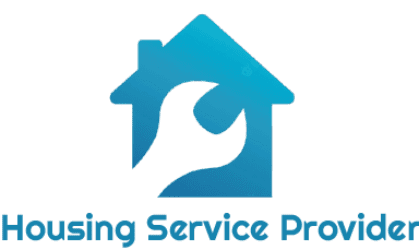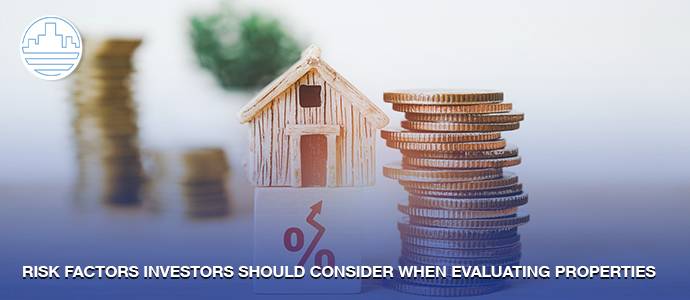A repossession can affect buying a house by negatively impacting your credit score and making it harder to qualify for a mortgage. It’s important to understand the impact of a repossession on your creditworthiness before applying for a home loan.
When considering buying a house, your creditworthiness plays a crucial role in determining your eligibility for a mortgage. A repossession can have a significant impact on your credit score, as it indicates to lenders that you have failed to repay a previous debt.
This can make it more difficult to qualify for a house loan, as lenders may view you as a higher risk borrower. Therefore, it’s important to be aware of the potential consequences of a repossession and take steps to rebuild your credit before applying for a mortgage.

Understanding Repossession
Repossession is a term that often evokes fear among individuals who are considering buying a house. It’s important to have a clear understanding of repossession and its potential impact on your ability to purchase a new home. In this section, we will delve into what repossession entails, the reasons behind it, and how it can affect your credit score.
What Is Repossession?
Repossession refers to the action taken by a lender to reclaim a property when the borrower fails to repay their loan or honor the terms of the agreement. In the context of buying a house, repossession typically occurs when homeowners default on their mortgage payments.
When a property is repossessed, it is often sold through an auction or by a bank to recoup the outstanding debt.
Key points about repossession:
- Repossession is a legal process that allows lenders to repossess a property when borrowers are unable to make their mortgage payments.
- It is typically used as a last resort by lenders to recover their investment in case of default.
Causes Of Repossession
There are various reasons that can lead to repossession, and it’s vital to understand these to avoid finding yourself in such a situation. Here are some common causes of repossession:
- Financial difficulties: A sudden loss of income, increased expenses, or unexpected financial challenges can make it difficult for homeowners to keep up with their mortgage payments.
- Job loss: Losing a job can significantly impact an individual’s financial stability, making it difficult to maintain regular mortgage payments.
- Divorce or separation: The financial strain of a divorce or separation can often result in missed mortgage payments and potentially lead to repossession.
- Adjustable rate mortgages: Homeowners with adjustable rate mortgages may face difficulties when interest rates rise, causing their monthly payments to become unaffordable.
How Repossession Affects Credit Score
Repossession has serious implications for your credit score, which is a crucial factor considered by lenders when you apply for a mortgage to buy a new house. Here’s how repossession can impact your credit score:
- Negative impact: Repossession will have a significant negative impact on your credit score, making it much harder for you to obtain credit in the future.
- Lower creditworthiness: A repossession on your credit report indicates to lenders that you were unable to repay your previous debt, making you appear less creditworthy.
- Higher interest rates: If you manage to secure a mortgage after repossession, lenders may charge you higher interest rates due to the perceived higher risk associated with your credit profile.
Understanding repossession is essential when considering buying a house. Repossession occurs when borrowers fail to honor their mortgage obligations, leading lenders to reclaim the property. It can be caused by various factors, such as financial difficulties, job loss, or divorce.
Moreover, repossession has a profound impact on your credit score, making it more challenging to secure future credit and potentially resulting in higher interest rates. By being aware of the implications, you can take proactive steps to avoid repossession and maintain a good credit standing.
Impact Of Repossession On Home Buying
Lenders And Repossession History
If you’ve experienced a repossession, it’s natural to wonder how it will impact your chances of buying a house. One of the key factors that lenders consider during the mortgage application process is your financial history. Repossession can have a significant impact on your ability to secure a house loan.
Here are a few key points to consider:
- Lenders review your credit history: During the mortgage application process, lenders carefully review your credit history to assess your creditworthiness. A repossession on your record can signal financial instability, which may make lenders hesitant to approve your house loan.
- Impact on credit score: Repossession generally has a negative impact on your credit score. This can affect your ability to obtain a mortgage as lenders typically prefer borrowers with good credit scores.
- Additional scrutiny by lenders: With a repossession in your financial history, lenders may place additional scrutiny on your application. They will likely analyze other aspects of your financial profile, such as your income, assets, and debt-to-income ratio, to determine whether you are a suitable candidate for a mortgage.
Challenges In Obtaining A Mortgage After Repossession
Obtaining a mortgage after experiencing a repossession can be challenging. Here are some key points to consider:
- Limited financing options: Some traditional lenders may be unwilling to offer you a mortgage if you have a repossession on your record. In such cases, you may have to consider alternative lending options, which often come with higher interest rates and less favorable terms.
- Longer waiting period: After a repossession, you may need to wait for a certain period before lenders will consider your mortgage application. This waiting period can vary depending on the lender and the specific circumstances of the repossession.
- Rebuilding credit: To improve your chances of securing a mortgage, it’s crucial to work on rebuilding your credit. This can involve making timely payments, reducing existing debts, and demonstrating responsible financial behavior over time.
Impact On Interest Rates And Loan Terms
Repossession can also affect the interest rates and loan terms offered by lenders. Consider the following:
- Higher interest rates: Lenders may view borrowers with a repossession in their history as higher-risk, resulting in higher interest rates being offered. This can significantly impact the overall cost of your mortgage.
- Stricter loan terms: Lenders may impose stricter loan terms for borrowers with a repossession, such as requiring a higher down payment or limiting the loan amount. These conditions aim to mitigate the lender’s perceived risk associated with your financial history.
- Limited borrowing capacity: Due to the impact on your creditworthiness, lenders may limit the amount you can borrow. This can affect your ability to purchase the desired property or result in a higher required down payment.
While a repossession can certainly present challenges when it comes to buying a house, it doesn’t necessarily mean homeownership is completely out of reach. By taking steps to rebuild your credit and working with lenders who specialize in assisting individuals with a repossession history, you can improve your chances of securing a mortgage and eventually buying a home.
Rebuilding Credit And Buying A House
If you’ve experienced a repossession, you may be concerned about how it will affect your ability to buy a house in the future. While a repossession can have a negative impact on your credit score, it doesn’t mean that buying a house is completely out of the question.
With some effort, you can rebuild your credit and increase your chances of getting approved for a mortgage. Below are some steps you can take to rebuild your credit after a repossession, strategies for improving your credit score, and options for buying a house with a repossession history.
Steps To Rebuild Credit After Repossession
Recovering from a repossession takes time, but with a consistent effort, you can rebuild your credit. Here are some steps to consider:
- Review your credit report: Obtain a copy of your credit report and carefully review it for any errors or discrepancies that you can dispute. Correcting any inaccuracies can help improve your credit standing.
- Pay your bills on time: Establish a track record of timely payments by making sure to pay all your bills promptly. This includes not only your loan or credit card payments but also utility bills and other monthly obligations.
- Start small with secured credit cards: Secured credit cards, which require a deposit as collateral, can be a useful tool for rebuilding credit. Use them responsibly by making small purchases and paying off the balance in full each month.
- Explore credit-builder loans: Credit-builder loans are designed to help individuals build or rebuild credit. These loans usually involve making small monthly payments over a fixed period of time, and the borrowed funds are held in a savings account until the loan is paid off.
- Keep credit utilization low: Aim to keep your credit utilization ratio, which is the amount of credit you’re using compared to your credit limit, below 30%. Paying down existing balances and avoiding new debt can help improve your credit score.
Strategies For Improving Credit Score
Improving your credit score takes time, but there are strategies you can employ to expedite the process. Consider the following:
- Paying off debt: Focus on paying off any outstanding debts, especially those with high interest rates. By reducing your overall debt load, you can improve your credit utilization and demonstrate responsible financial behavior.
- Diversify your credit mix: Having a healthy mix of credit accounts, such as credit cards, installment loans, and a mortgage, can positively impact your credit score. However, exercise caution and only take on new credit when necessary.
- Avoid new credit applications: Each time you apply for new credit, it can result in a hard inquiry on your credit report. Too many hard inquiries can negatively impact your credit score, so be selective when applying for new lines of credit.
- Regularly monitor your credit: Stay vigilant by monitoring your credit report regularly to identify potential issues and address them promptly. This can help prevent any surprises or inaccuracies that may hinder your credit improvement efforts.
Options For Buying A House With A Repossession History
While a repossession can make buying a house more challenging, it is still possible to become a homeowner. Explore these options:
- Fha loans: The federal housing administration (fha) provides loans to individuals with lower credit scores and previous credit issues. Fha loans typically have more lenient qualification criteria compared to conventional mortgages.
- Get a cosigner: Having a cosigner with a strong credit profile can help improve your chances of getting approved for a mortgage. Keep in mind that the cosigner will be equally responsible for the house loan, so choose someone you trust and ensure that both parties understand the implications.
- Save for a larger down payment: Increasing your down payment can show lenders that you are financially responsible and committed to the mortgage. It can also help offset the risk associated with your repossession history.
- Work with a credit repair agency: Consider seeking assistance from a reputable credit repair agency to help navigate the process of improving your credit and preparing for a mortgage application.
By taking proactive steps to rebuild your credit, implementing strategies to improve your credit score, and exploring alternative options for buying a house, you can increase your chances of successfully becoming a homeowner despite a repossession history. Stay committed to your financial goals, and don’t let a past repossession deter you from achieving your dream of owning a house.
Frequently Asked Questions On Will A Repossession Affect Buying A House
Can You Buy A House After Repossession?
Yes, it is possible to buy a house after repossession. However, it may be more challenging as it can impact your credit score and lenders might be hesitant. Building a good financial record, saving for a down payment, and working with a reputable lender can improve your chances of being approved for a mortgage.
How Long Does A Repossession Stay On Your Credit Report?
A repossession can stay on your credit report for up to seven years. This negative mark can significantly impact your credit score and make it harder to get loans or credit in the future. It is important to rebuild your credit by making timely payments and demonstrating responsible financial behavior.
Will A Repossession Affect My Ability To Get A Mortgage?
Yes, a repossession can affect your ability to get a mortgage. Lenders consider your credit history and a repossession is a red flag. It may result in higher interest rates, stricter borrowing terms, or even rejection of your mortgage application.
Working on improving your credit score and demonstrating responsible financial behavior can help mitigate these challenges.
Can I Remove A Repossession From My Credit Report?
In some cases, it may be possible to remove a repossession from your credit report. You can dispute any inaccurate information with the credit bureaus or negotiate with the lender for removal in exchange for payment. However, it can be a complex process and not guaranteed.
Consulting with a credit professional or financial advisor can help navigate the best course of action.
How Can I Rebuild My Credit After A Repossession?
Rebuilding your credit after repossession requires time and effort. Start by making all payments on time, especially for any remaining debts or bills. Creating a budget, reducing debt, and utilizing secured credit cards responsibly can help rebuild your credit over time.
It is important to be patient and consistent in your efforts.
Can I Get A Mortgage With A Repossession On My Credit Report?
While a repossession on your credit report can make it more challenging to get a mortgage, it is not impossible. Lenders may require a larger down payment, higher interest rates, or additional documentation to prove your financial stability. Consulting with a mortgage broker or lender experienced in dealing with borrowers with credit challenges can help navigate your options.
Conclusion
A repossession can have a significant impact on your ability to buy a house. Lenders view repossessions as a red flag, indicating financial instability and a higher risk borrower. However, this does not mean that buying a house after repossession is impossible.
By focusing on rebuilding credit, saving for a down payment, and demonstrating financial responsibility, you can improve your chances of obtaining a mortgage. It’s important to be proactive in repairing your credit score, seeking professional guidance if needed, and being patient throughout the process.
Remember, each lender has different criteria and guidelines, so it’s essential to shop around and understand your options. By staying committed to your financial goals and taking the necessary steps, you can overcome the challenges of a past repossession and achieve your dream of homeownership.




